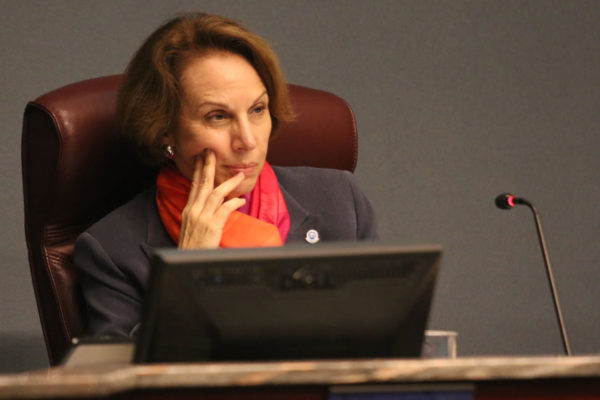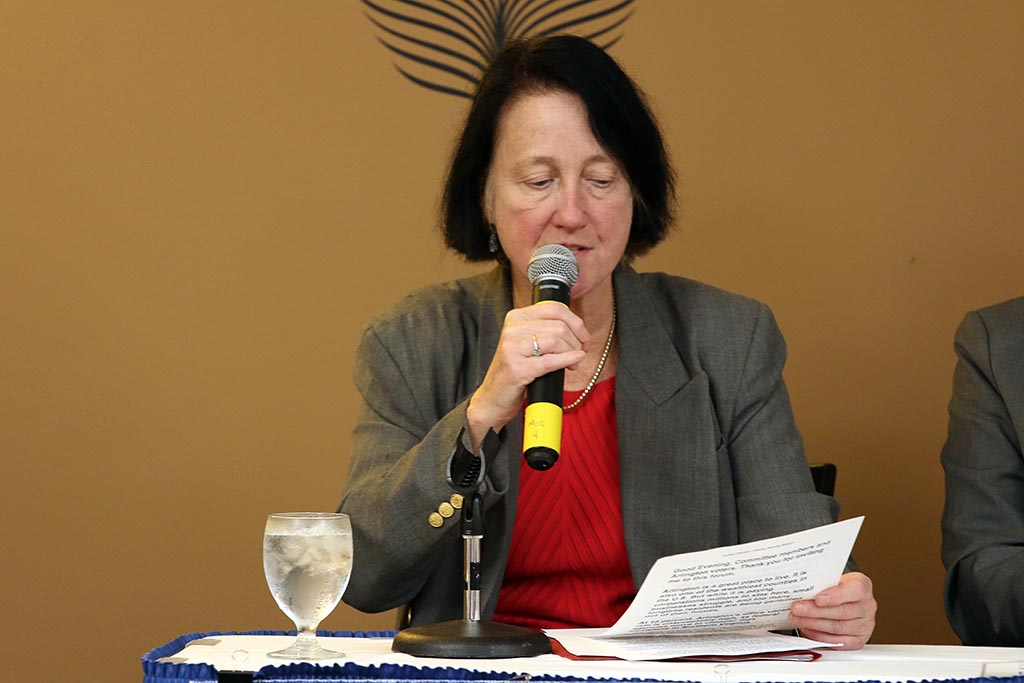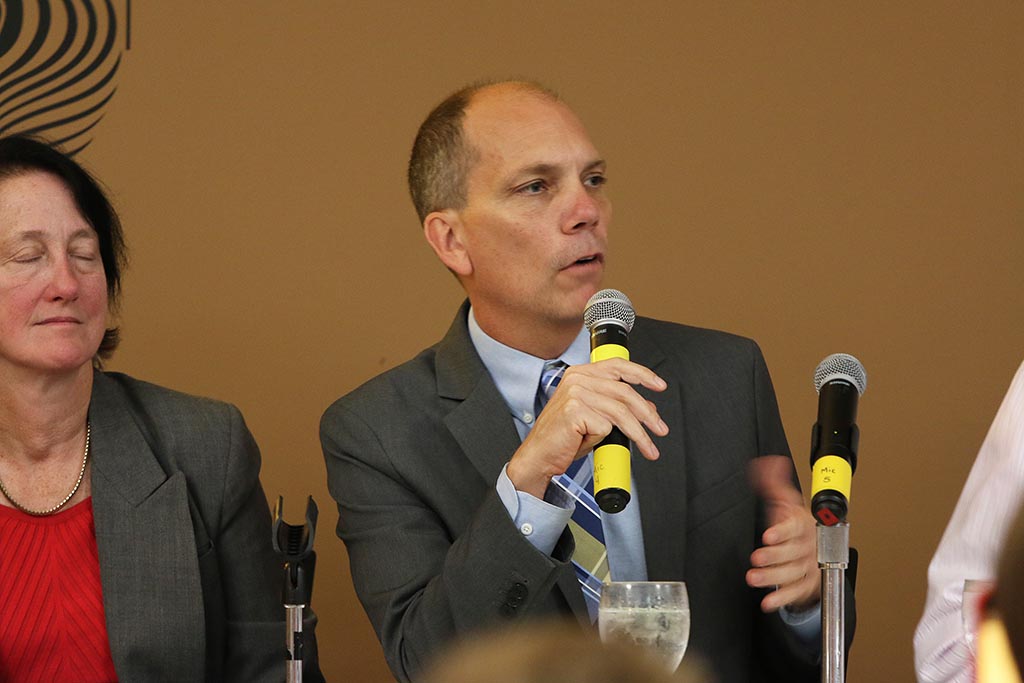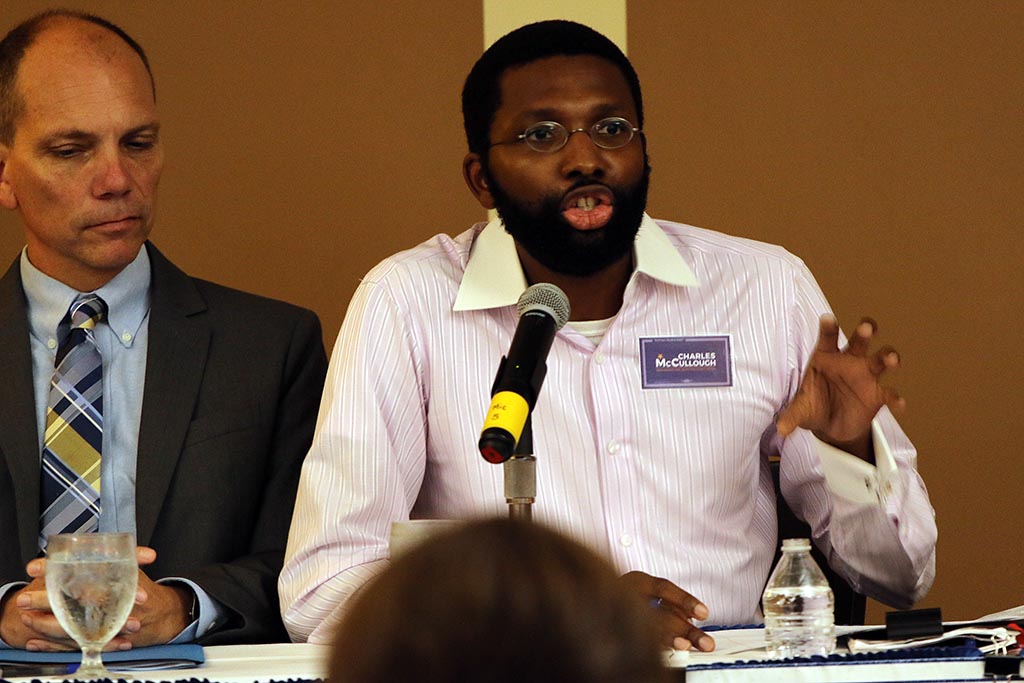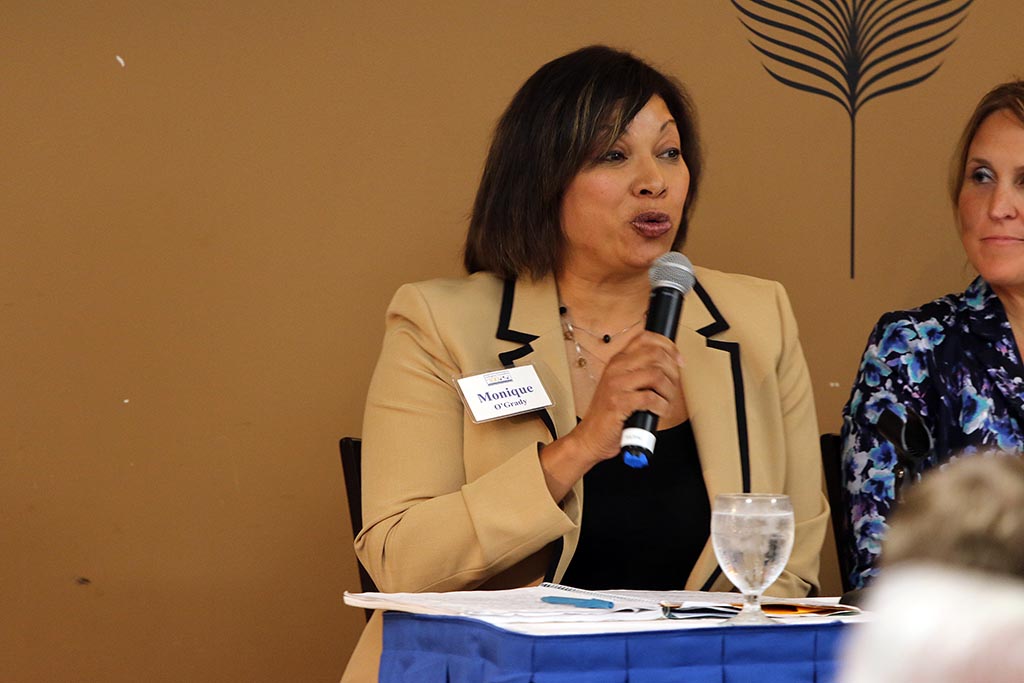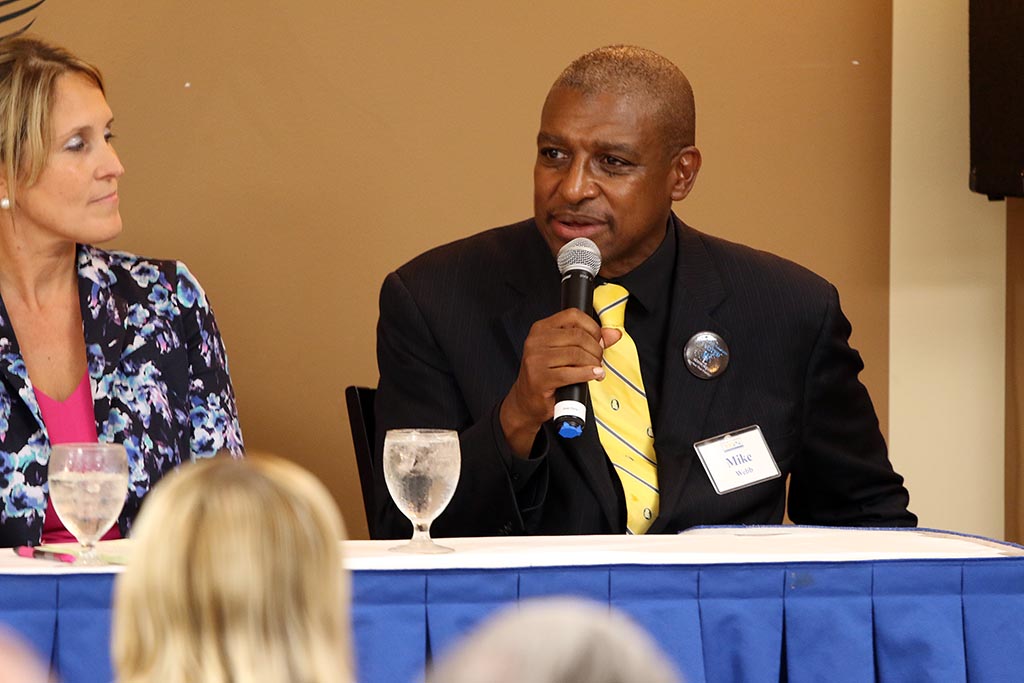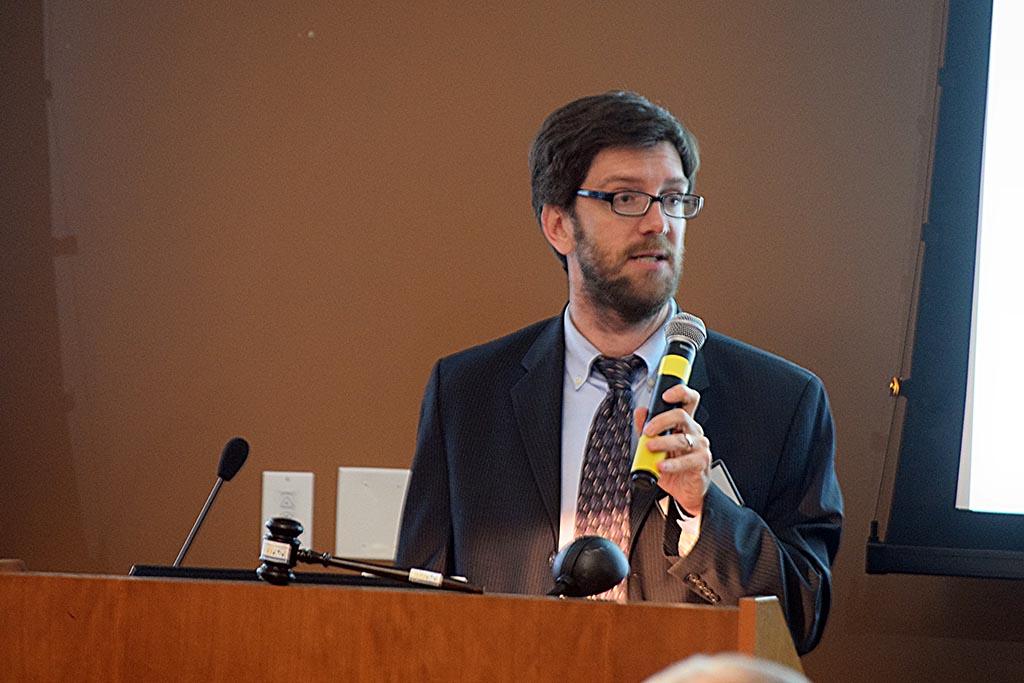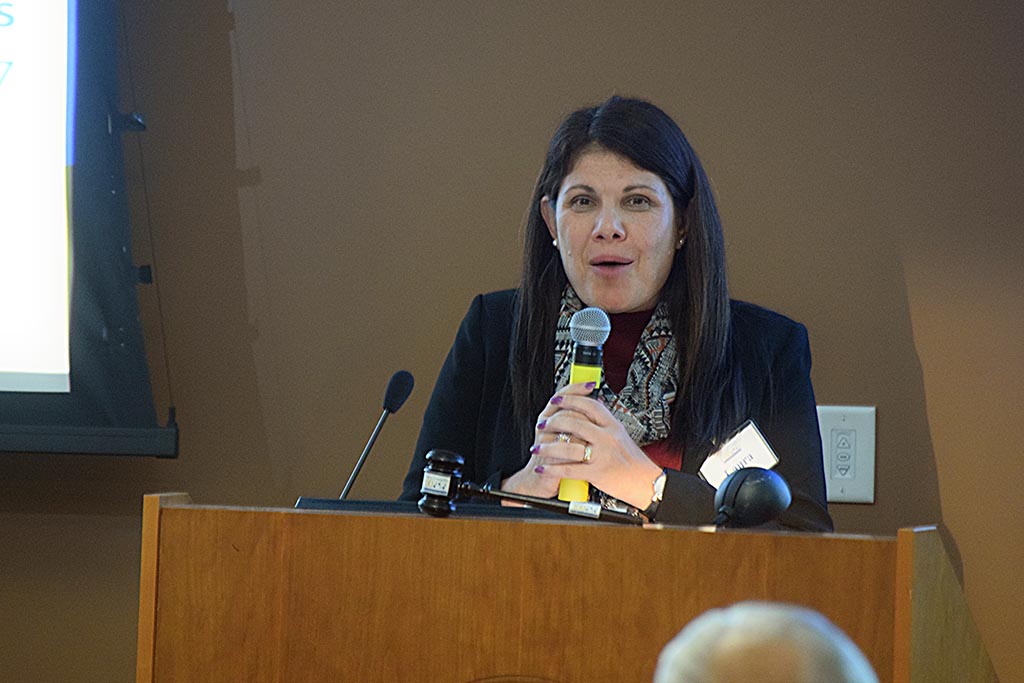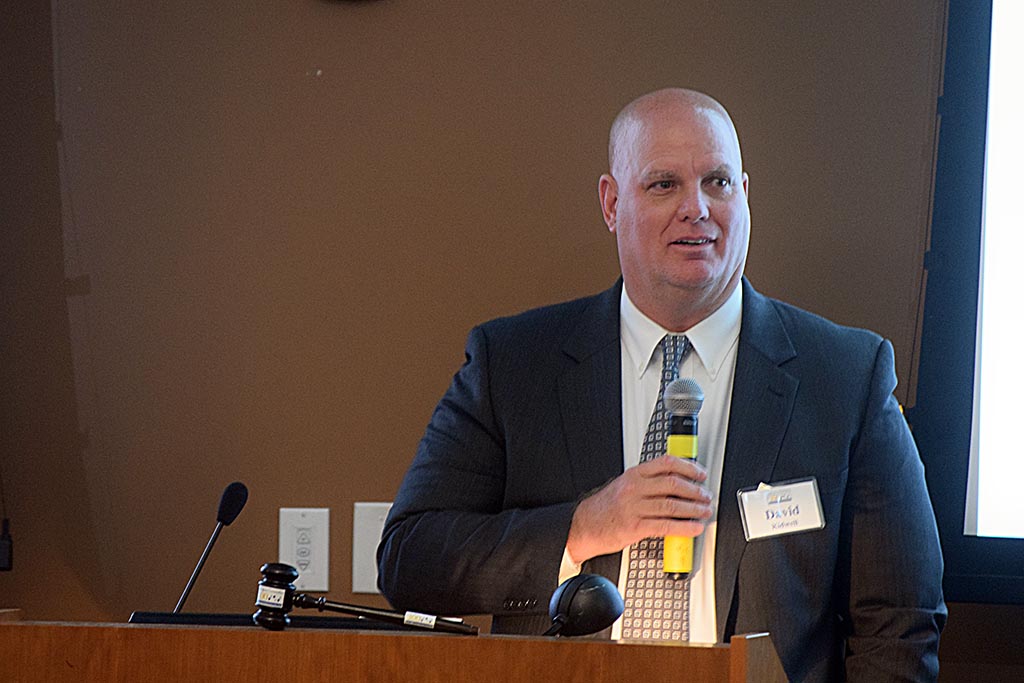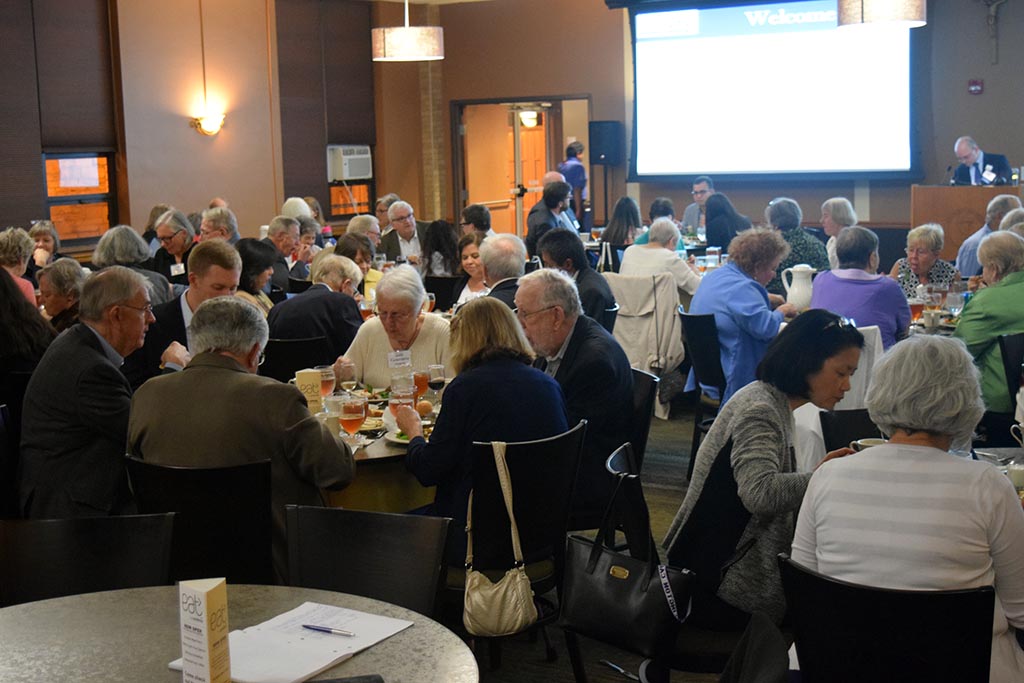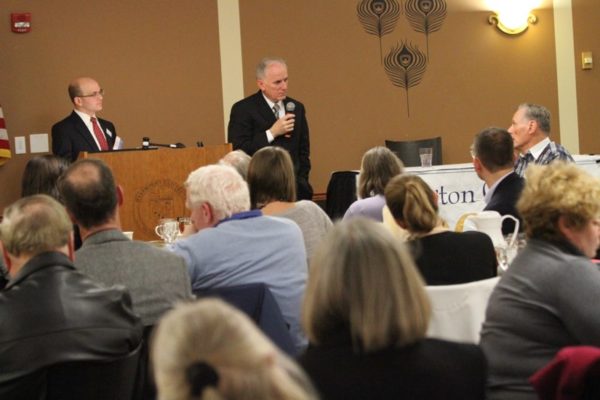Three candidates running to replace the late Erik Gutshall on the County Board met over Zoom for a debate hosted by the Arlington Committee of 100.
The special election candidates — Takis Karantonis (D), Bob Cambridge (R) and Susan Cunningham (I) — all called for a focus on equity and discussed ways to navigate a tighter county budget.
Karantonis, who serves as vice-chair of the Alliance for Housing Solutions and is former executive director of the Columbia Pike Revitalization Organization, laid out a several-pronged approach to how to focus the budget as the county works to manage a more limited revenue stream.
“COVID is an unexpected stress on our budget,” Karantonis said. “Citizens expect to have a government that reacts to such unexpected impacts. Right now, don’t know how deep or broad COVID economic impact will be. The focus [should be] social safety net expenditures as our first priority. Five-thousand families are on food assistance and the region has lost 300,000 jobs.”
Karantonis said in reviewing capital investments, the County Board should prioritize those that leverage external funding, like state and federal grants. Other priorities, he said, include micro-loans to help small businesses get back on their feet and trying to rescue Metro and the Arlington Transit bus service, which have seen substantial ridership losses during the pandemic.
“Then [we can] come out of this with a better base to decide how we will structure the county later,” Takis said. “I’m an economist, I’m trained to do this, and I’ve done it in the private sector and non-profit sector. The best focus is on economic development to rebound.”
Cambridge, an Army veteran and former CIA employee who works as a lawyer in Arlington, said his campaign is built on the idea that different political ideologies have good ideas that can contribute to each other. Cambridge said his approach to recovery would be built on incorporating more flexibility into the budget to address these sorts of crises.
“The budget is highly strained right now,” Cambridge said. “We have got to be flexible and respond as our understanding of challenges become more and more obvious. We do have a lot of city services we need. That is the sinews we all need. We really need to do things in a different way.”
Cunningham, who worked at the Internal Revenue Service and founded the nonprofit EdBuild, said the county should do more to improve how projects are financed.
“There are a lot of opportunities in our budget for improving our spending,” Cunningham said. “Not eliminating, but improving implementation. Our projects take too long, our community engagement takes too long, we don’t look back and do audits of capital programs. There’s a lot of room to improve and be more accountable.”
Cunningham said the budget should prioritize updating the outdated infrastructure, particularly Arlington’s stormwater and flood mitigation systems.
Cunningham and Cambridge both argued for a data-driven approach to solving issues of inequality on Arlington.
“Data and facts should guide us,” Cunningham said. “Our data elements tell us the story of suspensions that begin in kindergarten for black and brown children at much higher rates, and of COVID outcomes right now with over 50% of cases in the Hispanic community. The numbers tell us where we’re doing okay and where we’re not. We should use that to guide our efforts and evaluate the implementation of changes.”
Karantonis argued addressing inequality in Arlington has to go deeper than data and statistics, though, and must look at how different communities in Arlington are prioritized or ignored in county discussions. He pointed to a situation where he said the civic association of a historically Black neighborhood was overlooked in county discussions.
“We have to be active about doing this… including restorative justice efforts and looking at the educational system, making sure people have access to resources,” Takis said. “The numbers are great, but what matters is how people feel.”
Also during the debate, the candidates discussed transit on Columbia Pike. None — including Karantonis, a booster of the Pike streetcar plan while at CPRO — expressed an interest in reviving the cancelled streetcar project, though the candidates “did press for increased attention to mass-transit along the Columbia Pike corridor, and leveled criticism at the county government for not acting fast enough or going far enough in meeting the transit needs of residents there,” the Sun Gazette reported.
The special election is scheduled to be held on July 7.
Image via Arlington Committee of 100



